Changing attitudes towards secondary education
The latest case study from Afghanistan

In a country where traditional wisdom has not always valued women pursuing further education, AKF’s Sarah Ter* describes how attitudes are slowly shifting.
After decades of war in Afghanistan, access to education remains a challenge and the illiteracy rate is very high, particularly among women in rural areas. Mothers during a focus group discussion in Kabul city acknowledge the issue:
“Most people believe that girls who are 14 years or older should not go to school and some people arrange their marriage. The mindsets have not changed much.”
Research shows that fifty percent of girls drop out of school after grade 6 when they reach puberty and have to demonstrate their ability to adhere to social norms. They are at an age where families consider potential suitors and they also take on the responsibility of the family name, outweighing the value of education.
“A man educates a person, while a woman educates a family”
Afghan proverb
Tabasum, a 17-year old lower secondary student in a Community Based Education (CBE) class has five sisters who were never allowed to go to secondary school after completing their primary education. Their father had decided they should get married before turning eighteen. The same fate awaited her. She recalled:
“I was so frustrated and lost hope when my family discussed my marriage. I told my family that I did not want to get married at a young age and expressed my wish to complete secondary school because I dreamt of becoming a teacher. However, they went ahead with arranging my marriage.”
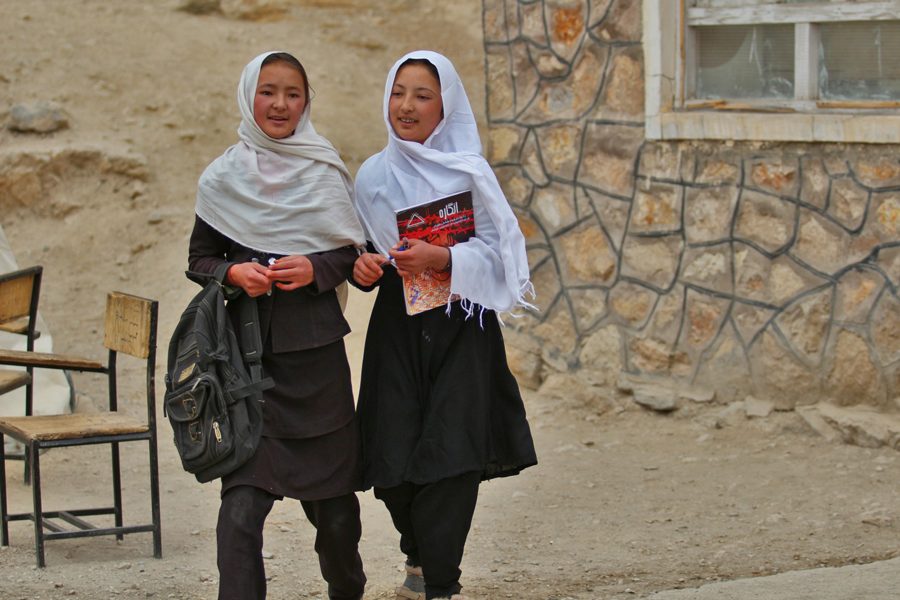
Aside from the threat of early marriage, adolescent girls often miss class because they are expected to help their mother with household chores as they get older. Rokhsar, a grade 7 CBE student in Khost province was absent very regularly. Her mother, herself illiterate, thought that household chores were more important than her education, stating:
“What use is her education? My in-laws get angry when household chores are not performed on time and they want me to involve Rokhsar as well, since learning household chores can help her in future when she starts married life. She is the cause of family arguments and disputes.”
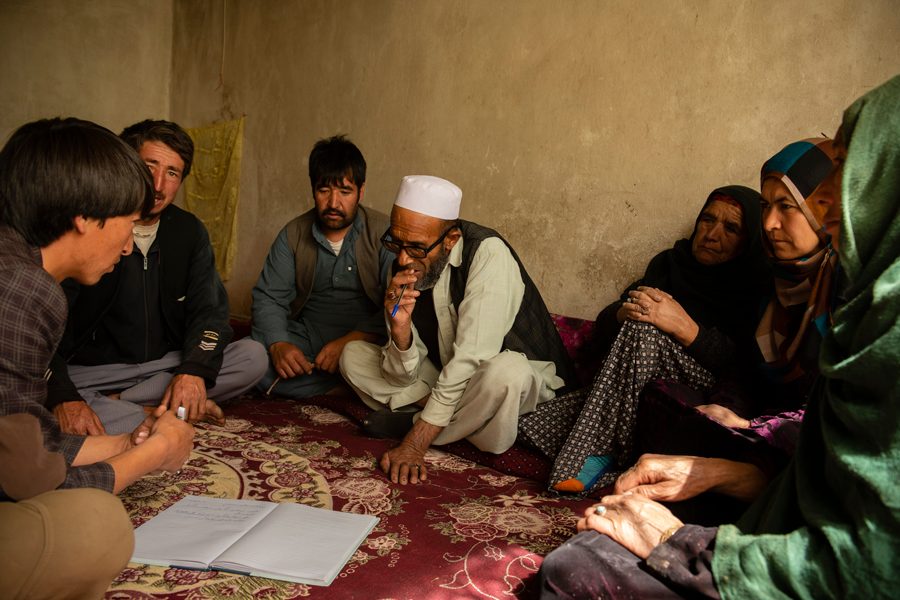
“I told my family that I did not want to get married at a young age and expressed my wish to complete secondary school because I dreamt of becoming a teacher.”
STAGES II works with mullahs, school management committee (SMC) members and teachers to slowly change attitudes and gain community support for girls’ right to secondary education. SMC members and the local community play a fundamental role in encouraging parents to allow girls to attend school and they receive training from STAGES on conflict resolution and follow-up on absenteeism or drop out.
Female SMC members and teachers play a critical role in talking to mothers about the importance of their daughters’ education. In Rokhsar’s case, SMC members went to visit her mother and tried to find a solution to her problem. Together, they made a list of household chores, set a schedule for each task and distributed a few chores to Rokhsar after class. They requested her family to arrange their chores without arguing and convinced her mother to support Rokhsar and be patient with her so that she could continue her education. Some mothers during a focus group discussion in Baghlan province, said:
“Our daughters are learning in school, we take over the household chores to let them go to their lessons.”
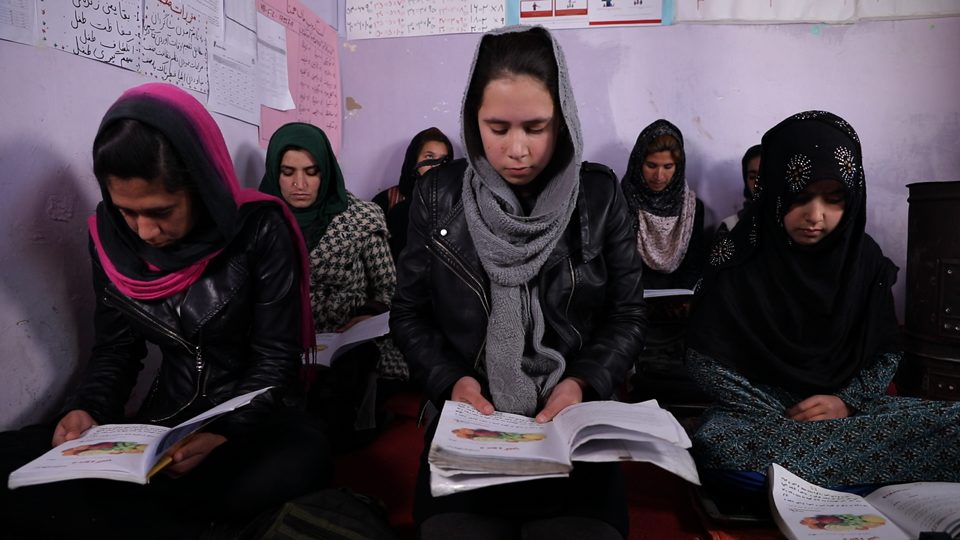
STAGES’ midline survey showed that there was a 20 percent decrease in the number of men prioritising marriage over school since the beginning of the project, revealing a shift in attitudes around educated women and their value within the household. Parents are increasingly waiting to marry their daughters until they’ve finished their education, and as such, marriage is seen as less common a reason for dropping out of school among ALP/LSCBE students. One Baghlan-based mullah, commented:
“Girls here mostly get married early but I recommend for families to either delay the marriage time or allow girls to continue their lessons after marriage.”
Religious leaders and shura members appear to be more comfortable discussing and promoting the delay of early marriage in the community. However, while 94 percent of SMC members report that they are able to communicate with parents about general issues regarding early marriage, when it comes to a specific situation, ultimately the decision is out of their hands. They often highlight the fact that they can simply advise families to delay marriage, but the economic situation of families is generally more influential. During a focus group discussion in Badakshan province, one girl confirmed:
“When girls get married, there are other family problems they have to deal with, so they are not able to continue their schooling.”
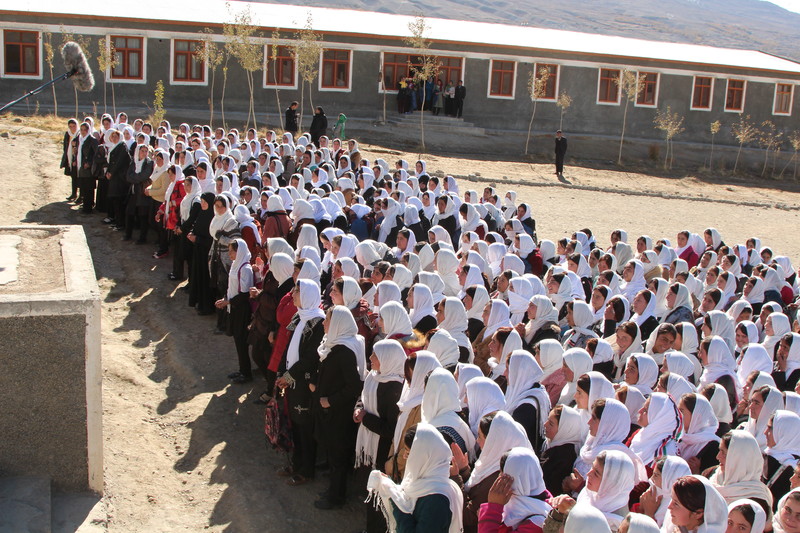
STAGES is making a difference in the lives of hundreds of adolescent girls across the country by bringing classes close to their homes and addressing cultural issues they may face. Gulnara, a sixteen years-old girl living in Faryab province was able to fulfill her dream of going to school thanks to the opening of an ALP class in her village. Her parents had always prevented her from attending school but active SMC members convinced her parents to enroll her and even managed to delay her engagement to a cousin to prevent her from dropping out from school after a year. She is now one of the most active students in her class and feels more confident about her future:
“Education will enable me to have a voice and participate in decision-making process within my family as well as in my future. I would also like to try to encourage other families to send their daughters to school.”
This is the way STAGES hopes to secure support for all girls’ right to secondary education in the future, one girl at a time, becoming in turn an advocate and a champion of girls’ education in her community.
*Names and locations have been changed to protect identities. Photos are representative.
Steps Towards Afghan Girls’ Education Success (STAGES) is AKF’s largest girls’ education programme globally. AKF is proud to work with a consortium of partners to implement this programme which includes CARE, Save the Children, Catholic Relief Services, Aga Khan Education Services, and the Afghan Education Production Organisation (AEPO). It is supported by the Afghan Ministry of Education and funded by the UK’s Foreign, Commonwealth & Development Office.

STAGES is funded with UKAID from the UK government.
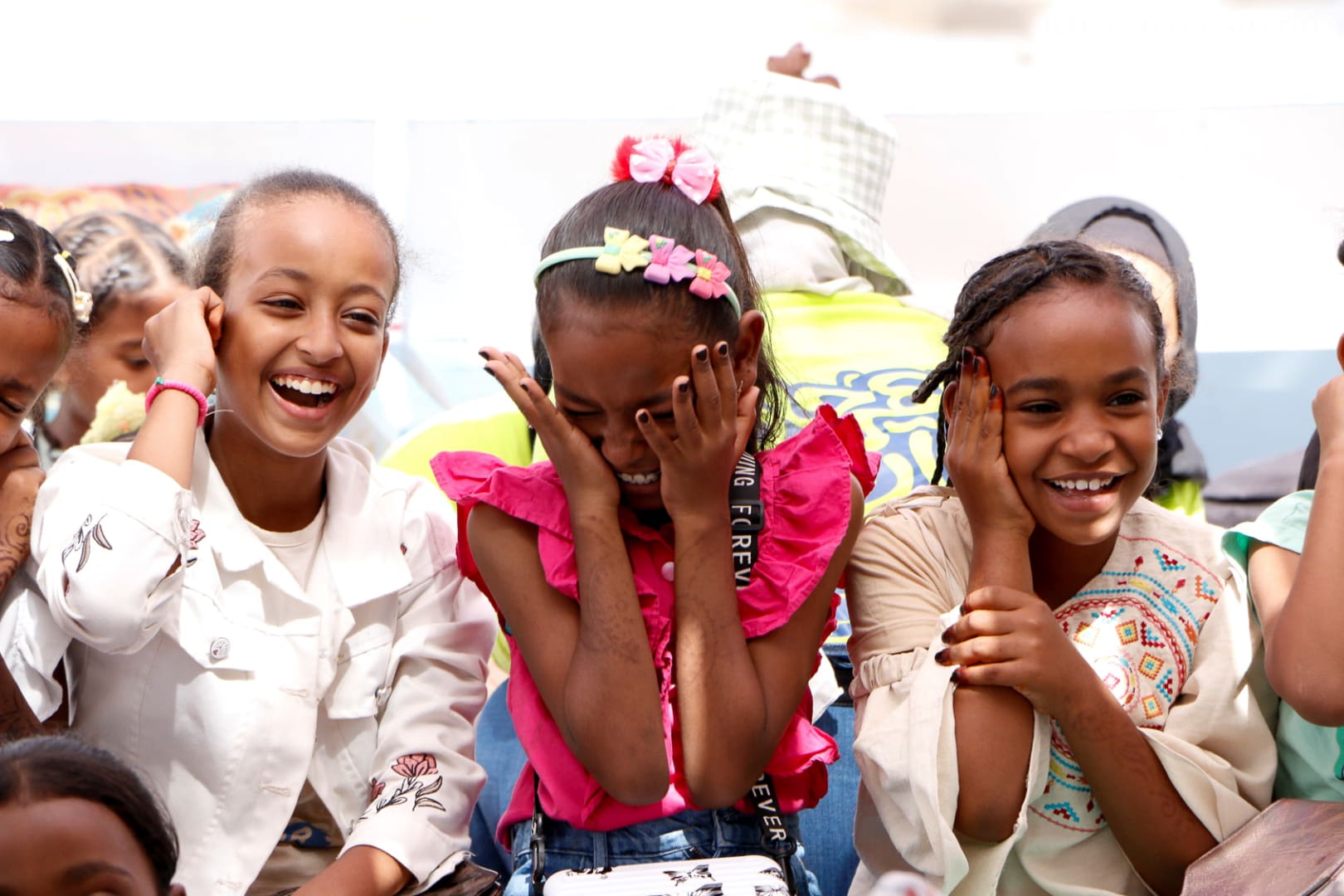
Support our work Your donations are helping us build a future where we all thrive together.